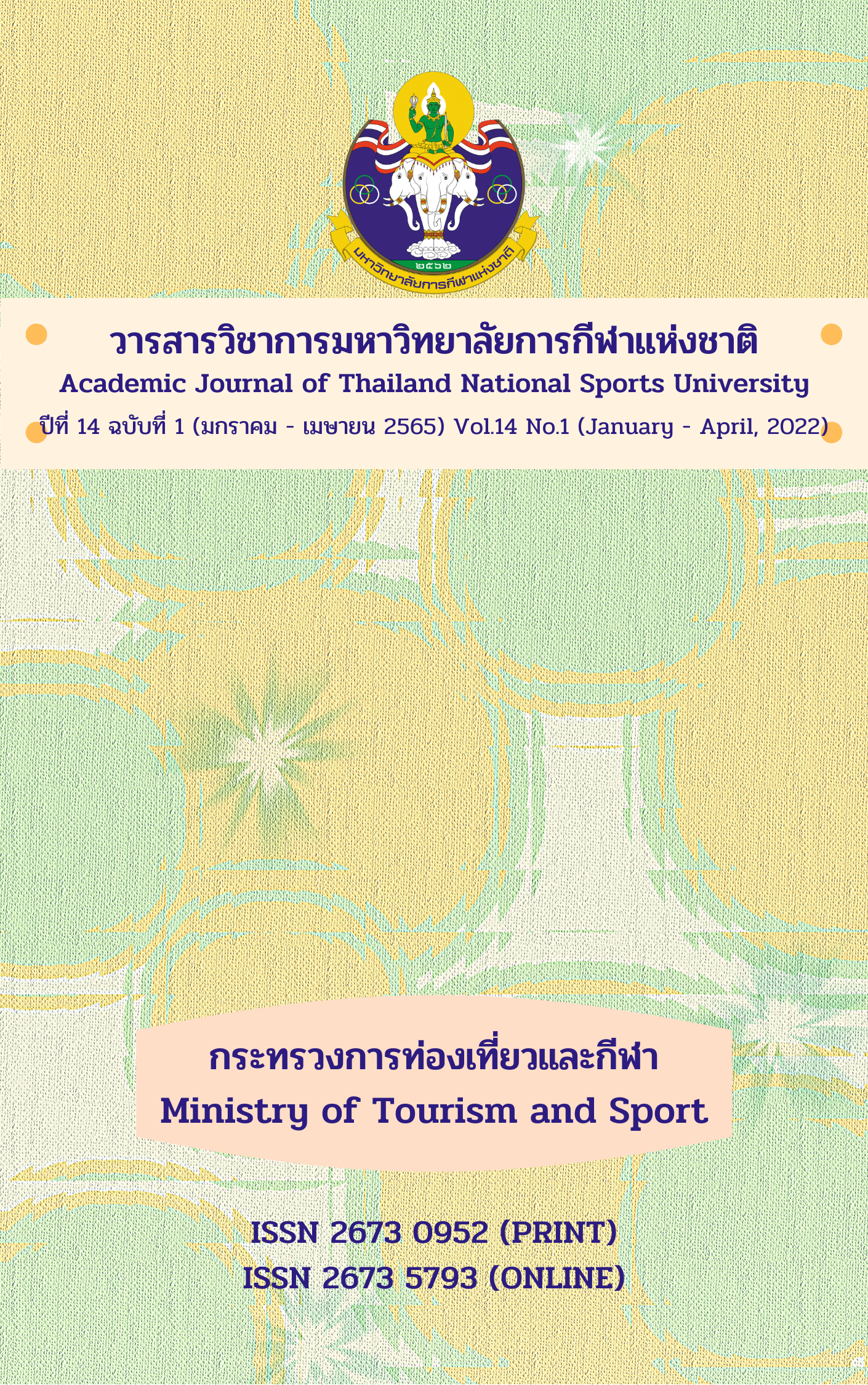EFFECTS OF MOTORCYCLE DRIVING SAFETY ENHANCEMENT PROGRAM USING SELF – EFFICACY AND SELF – CARE THEORIES OF LOWER SECONDARY SCHOOL STUDENTS
Main Article Content
Abstract
Purposes: to compare the mean scores of knowledge, awareness and practice in motorcyclists before and after the experiment within the experimental group and the control group, as well as to compare the mean scores of knowledge, awareness, and practice in motorcycle riding after the experiment between the experimental group and the control group. Methods: The population were lower secondary school students studying in schools under the Basic Education Commission. The samples consisted of 36 lower secondary school student volunteers. The samples were divided into two groups; 18 experimental and 18 control group students, by simple random sampling. The instruments were the motorcycle driving safety enhancement program oriented with the self-efficacy theory and self-care theory. This program consisted of 5 activities with the consistency index equal to 1.00. The knowledge and awareness tests included 30 multi-choice questions of each test, and the practice test as a rating scale included 30 items. The consistency index ranged from 0.6 to 1.0, 0.8 to 1.0 and 1.00. Reliabilitiy values were 0.80, 0.82 and 0.86, respectively. The duration of the research was 8 weeks. Data were analyzed by using mean, standard deviation. Test of the difference of the mean scores were used the Dependent t-test for within the group and the independent t - test for between groups. The results: showed that the mean scores of knowledge and awareness after the experiment were statistically significant higher than that before the experiment at the level of .05. The mean score of motorcycle riding practice was not statistically significant different at the level of .05, and the mean scores of knowledge, awareness, and practice in motorcycle riding after the experiment of the experimental group were higher than that of the control group with statistical significance at the level of .05.
Article Details

This work is licensed under a Creative Commons Attribution-NonCommercial-NoDerivatives 4.0 International License.
The published article is a copyright of the Academic Journal of Thailand National Sports University. The passage appeared in each article in this academic journal is a perspective of each author which is not related to the journal. Each author is required to be responsible for all components of his/her own article. If there are any mistakes, each author must be responsible for those mistakes on his/her own.
References
Bandura, A. (1986). Social foundations of thought and action. Englewood Cliffs, NJ.
Bandura, A., & Walters, R. H. (1977). Social learning theory. Englewood Cliffs, NJ: Prentice - hall.
Bangon Changsap, Manus Boonprakob, Ong-art Naiyapatana, & Pramote Thongkrajai. (2007). The impacts of Health Education Programme by group process on preventive behaviors against intestinal parasitic infestation among housewives in Suan Aoy community, Khlong Toei district, Bangkok. Journal of Health Science and Medical Research, 25(2), 77 - 87.
Berry, J. M. (1987). A self-efficacy model of memory performance. In meeting of the American Psychological Association, New York.
Department of Land Transport. (2018). Summary of road traffic accident statistics analysis report for fiscal year 2018. Retrieved from https://web.dlt.go.th/statistics/load_file_select_new_car.php?t=7&tmp=6962.610967485792&data_file=31
Division of Non communicable Diseases. (2016). Road accident situation in Thailand 2016. Retrieved from http://thaincd.com/document/file/info/injured/
Jedjan Lounnetngern. (2008). Effects of training perceived self - efficacy and promoting attitude of AIDS risk behavioral prevention on self - efficacy, attitude and AIDS risk behavioral avoidance intention among female students (Master’s thesis), Chiang Mai University.
Kwanjit Tisak. (2005). The effect of a self - efficacy promoting program by peer leaders on sexual health promoting behaviors of early adolescents (Doctoral dissertation), Chulalongkorn University.
Orem, D. E. (2001). Nursing: Concepts of Practice. St Louis. MO: Mosby.
Road safety center. (2018). World Road Safety Situation Report 2018. Retrieved from http://www.roadsafetythai.org/content/doc_20190108110951.pdf
Supreeya tansakul. (2001). Learning process and health behavior change. Thailand Journal of Health Promotion and Environmental Health, 24(4), 41 - 49.
Sureerat Chaichana. (2012). Perception of self-efficacy on self-care behavior of patients with low back pain in physical therapy unit, Thoen Hospital, Lampang Province. Chiang Mai University.
Thitivan Hongtiyanon, Lakana Yodkoldij, Jiraporn Rakkarn, & Wachiraporn Chotipanus. (2018). The effectiveness of perceived self - efficacy program for assisting adolescences towards behavioral of avoiding narcotics. Royal Thai Army Medical Journal, 72(1), 33 - 40
Wanwisa Poopiwkaew, Wisit Thongkum, & Nantawan Tippayanate. (2018). Effects of driving safety program of motorcycle accident prevention among student in Rajabhat Mahasarakham University. The Office of Disease Prevention and Control 9th Nakhon Ratchasima Journal, 24(1), 76 - 85.
World Health Organization (2018). World Road Safety Report 2018. Retrieved from https://www.who.int/violence_injury_prevention/road_safety_status/2018/en/
Wu, S. F. V., Hsieh, N. C., Lin, L. J., & Tsai., J. M. (2016). Prediction of self - care behavior on the basis of knowledge about chronic kidney disease using self - efficacy as a mediator. Journal of Clinical Nursing, 25(17-18), 2609 - 2618.


